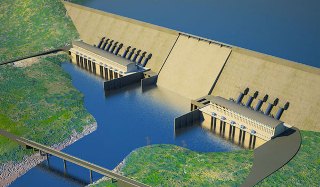Khartoum to host tripartite meeting over Grand Renaissance Dam
April 3, 2018 (KHARTOUM) – A tripartite meeting including foreign ministers, irrigation ministers and heads of intelligence of Sudan, Ethiopia and Egypt would convene in Khartoum on Wednesday to discuss the Grand Ethiopian Renaissance Dam (GERD).

He added the participation of the foreign ministers and heads of intelligence aims to achieve broader agreement on the decision-making and to push forward the technical file and place it in a more sustainable and harmonized track.
The Sudanese minister added the three leaders issued clear directives during their meeting in Addis Ababa, saying it is indispensable to reach common understandings that address the concerns of all parties.
He pointed out that such meetings offer an opportunity to develop common visions and pave the way for future cooperation and unity.
It is noteworthy that the meeting was initially scheduled to take place from 24 to 25 February in Khartoum but was postponed at the request of Addis Ababa following the resignation of Ethiopia’s Prime Minister Hailemariam Desalegn on 15 February.
In March 2015, the leaders of the three nations signed in Khartoum a framework cooperation deal on the GERD. They said the “declaration of principles” would pave the way for further diplomatic cooperation on the GERD which has stirred fears of a regional resource conflict.
However, since then the three countries failed to agree on the findings of the technical report related to the impact of the dam prepared by consultant companies, French firms BRL and Artelia.
The multi-billion dollar dam is being constructed on the Blue Nile, about 20 kilometres from the Sudanese border, and has a capacity of 74 billion cubic meters, and is expected to generate electrical power of up to 6,000 megawatts.
Egypt fears the dam will negatively affect its traditional share of water from the Nile, its only source of water which has been determined by a colonial-era water-sharing treaty.
But Ethiopia insists that this will not occur and asserts that the project is indispensable to its own national development and the economic welfare of its burgeoning population.
(ST)
